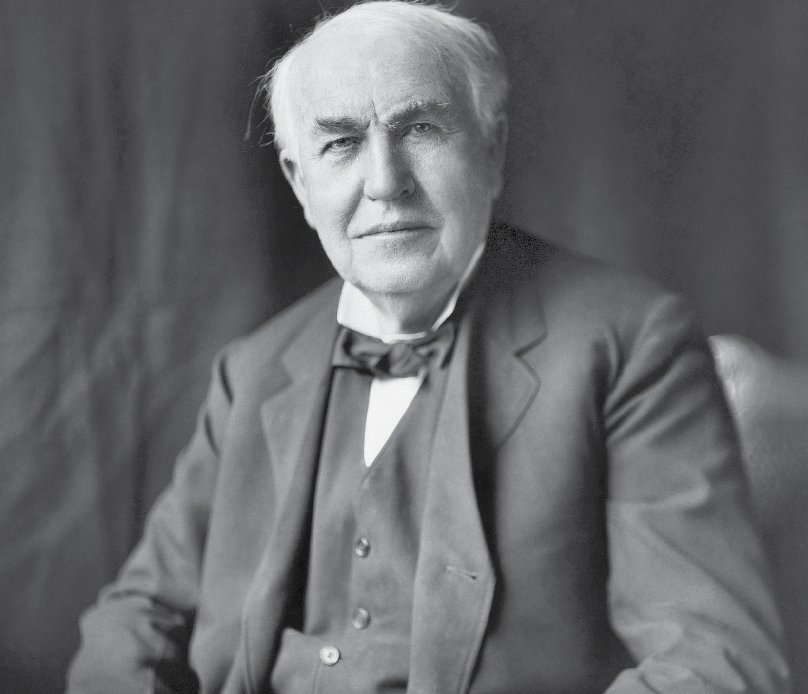A kid who would go on to become a major role in the field of deaf education and activism was born in a small French village on a brisk autumn day in 1803. It was Ferdinand Berthier, the child. Silence and resiliency characterized his early years as he made his way through a society that was not yet fully aware of the needs and potential of the deaf community. Nobody could have predicted that this unassuming youngster would become a man whose silent voice would reverberate through the halls of history, advocating for the rights and education of the deaf community.
Ferdinand’s adventure started in the village of Louhans, where he was raised by a family that saw potential in him despite the constraints of the times. The Berthiers lacked material prosperity, but they had abundance in love and tenacity. Ferdinand showed signs of a sharp mind and an endless interest about the world around him at a young age. His parents lay the foundation for a life devoted to school and learning by recognizing his special talents and working to provide him the best education possible.
As Ferdinand grew older, he faced difficulties that others would have found intimidating. However, these challenges only strengthened his will to succeed. Eventually, his journey took him to Paris, where he would pursue an education and emerge as a ray of hope and advancement for the deaf population. This blog post explores Ferdinand Berthier’s life and legacy, including his advocacy work, contributions to deaf education, and long-lasting effects.

Childhood and Schooling
Family History
On September 30, 1803, Ferdinand Berthier was born in the French department of Saône-et-Loire, in the little town of Louhans. Jean-François and Marguerite Berthier were modest farmers who raised him. They saw Ferdinand’s promise early on and were resolved to fund his education despite their limited resources.
Early Life and Education
Early on in Ferdinand’s education, his mother tutored him in reading and math at home. The Berthiers looked for more formal education options for their kid, nevertheless, realizing the limits of their money. Ferdinand began attending the Institute for the Deaf-Mutes in Paris when he was seven years old. At the time, this was one of the few schools specifically designed to educate the deaf.
Early Education of Ferdinand Berthier
| Age | Education | Institution |
|---|---|---|
| 0-7 | Home schooling | Taught by mother |
| 7-15 | Formal education for the deaf | Institute for the Deaf-Mutes, Paris |
Ferdinand thrived at the Institute for the Deaf-Mutes, where he was taught by well-known teachers such as Abbé de l’Épée and Abbé Sicard. Ferdinand’s remarkable qualities were acknowledged by his mentors, who also supported his growth on the academic and personal fronts. Berthier’s academic prowess, especially in language and literature, set the groundwork for his subsequent contributions to the field of deaf education.
Career Overview and Inputs
Educating at the Institute
Berthier continued to work at the Institute for the Deaf-Mutes after graduating, but now he was a teacher. He soon gained the respect and admiration of both his peers and pupils for his creative teaching strategies and profound comprehension of the difficulties faced by deaf students.
Growth of the Deaf Community and Culture
Berthier made a tremendous contribution to the creation of a separate deaf culture and community, among other things. He played a key role in setting up the first deaf people’s meetings, which helped them develop a feeling of identification and camaraderie. The foundation for the National Deaf-Mute Congresses in France was built during these sessions.
Literary and Academic Pieces
Berthier was a prolific writer and academic as well. He wrote a number of significant books on the history, culture, and education of the deaf. His articles, which supported deaf people’s rights and the value of sign language instruction in schools, offered insightful perspectives into the lives and experiences of the deaf.
Ferdinand Berthier’s Principal Works
| Year | Title | Subject |
|---|---|---|
| 1840 | “Memoirs of the Deaf-Mute” | Autobiographical account |
| 1849 | “History of the Deaf and Dumb” | Historical overview of deaf education |
| 1852 | “Letters on the Education of the Deaf” | Advocacy for sign language |
Activism and Advocacy
Berthier tirelessly fought for the rights of the deaf throughout his life. He collaborated closely with educators and public servants to advance laws that assisted deaf pupils in receiving an inclusive education. His work played a significant role in the acceptance of sign language as a respectable medium of instruction and communication.
Effects and Heritage on Deaf Education
Berthier transformed deaf education with his creative teaching strategies and support of sign language usage. His focus on a comprehensive approach to education that took into account community, language, and culture set new benchmarks for teaching methods around the globe.
Aspects of Deaf Culture Contributed
Berthier’s contributions to the cultural and social domains went beyond education. He was a trailblazer in advocating for the acceptance of deaf culture and inspiring deaf people to take pride in their identity and background. His work contributed to the development of the robust and vibrant deaf community that exists today.
Acknowledgment and Honors
Throughout his life, Berthier was bestow with various honors in acknowledgment of his accomplishments. One of France’s greatest civilian honors, the Legion of Honour, was given to him in recognition of his lobbying and educational contributions. Several institutes and groups devoted to promoting deaf culture and education have also maintained his legacy.
FAQs pertaining to Ferdinand Berthier
Is Ferdinand Berthier a person?
Throughout the 1800s, Ferdinand Berthier was a trailblazing author, educator, and supporter of the deaf community. He was a major contributor to the growth of deaf culture and education.
What significant contributions to deaf education did Ferdinand Berthier make?
Among Berthier’s most significant accomplishments are his creative teaching strategies, support of sign language, and initiatives to create a unique deaf community and culture. He also wrote a number of significant books on the history and education of the deaf.
What impact did Ferdinand Berthier have on the deaf community?
In order to promote a feeling of identity and camaraderie within the deaf community, Berthier played a crucial role in setting up the initial meetings. His support of the acceptance of deaf culture and sign language contributed to the development of a robust and unified deaf community.
Which notable works by Ferdinand Berthier are you referring to?
“Memoirs of the Deaf-Mute,” “History of the Deaf and Dumb,” and “Letters on the Education of the Deaf” are a few of Berthier’s important works. These writings supported the rights of the deaf and offered insightful perspectives on their lives and experiences.
What honors did Ferdinand Berthier get for his contributions?
One of France’s greatest civilian honors, the Legion of Honour, was among the many honors Berthier won for his services. Several establishments and groups devoted to deaf culture and education have also continued his legacy.
What was the influence of Ferdinand Berthier’s work on the deaf community?
By encouraging the use of sign language, fighting for their rights, and building a feeling of identity and community, Berthier’s work had a significant influence on the deaf population. His contributions still have an impact on deaf culture and education around the globe.
Conclusion
The life and contributions of Ferdinand Berthier serve as a tribute to the strength of community, activism, and education. Generations of educators, advocates, and deaf people have been inspire for his contributions to deaf education and culture, leaving an enduring legacy. Berthier protected the rights and potential of the deaf community by means of his creative teaching strategies, written works, and unceasing campaigning. This ensured that even though their voices were mute, future generations would be able to clearly hear them.


